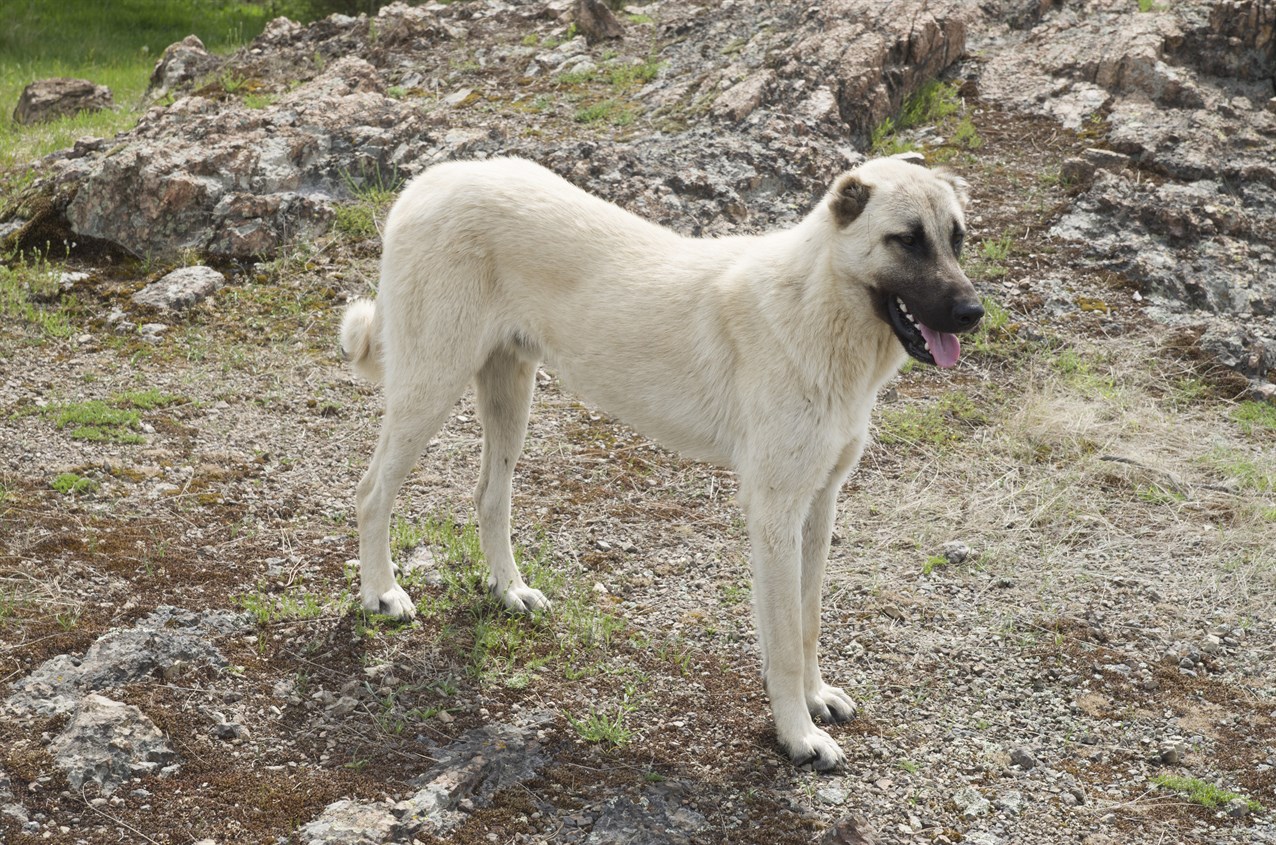Common Health Issues of the Kangal Dog

Kangal Dogs are generally healthy and hardy, but like all breeds, they can be prone to certain health issues. Responsible breeding practises and regular veterinary care can help manage and mitigate these potential health concerns.
Hip Dysplasia
Hip dysplasia is a common concern in large and giant breeds like the Kangal. It is a genetic condition where the hip joint does not develop properly, leading to arthritis and discomfort. Maintaining a healthy weight, providing joint supplements, and moderate exercise can help manage this condition.
Bloat (Gastric Torsion)
Kangals, with their deep chests, are also at risk of developing bloat, a life-threatening condition where the stomach fills with gas and twists on itself. This can cause rapid shock and requires immediate veterinary attention. Feeding smaller, more frequent meals and avoiding exercise after eating can help reduce the risk.
Entropion
This is an eye condition where the eyelid rolls inward, causing irritation and discomfort. Surgical correction may be necessary to alleviate this issue.
Hypothyroidism
Kangals can be susceptible to hypothyroidism, a condition where the thyroid gland does not produce enough hormones. Symptoms may include weight gain, lethargy, and skin problems. Medication can manage this condition effectively.
Ear Infections
Kangals, like many dogs with floppy ears, are prone to ear infections. Regular cleaning and proper ear care can help prevent this issue.
Skin Conditions
Skin problems such as allergies, hot spots, and mange can occur in Kangals. Regular grooming, flea and tick prevention, and a balanced diet can help maintain healthy skin.
Heart Issues
Some Kangals may develop heart-related conditions, such as dilated cardiomyopathy (DCM). Regular veterinary check-ups can help monitor heart health.
Obesity
Being a large breed, Kangals can gain weight if their diet and exercise are not properly managed. Obesity can lead to various health problems, including joint issues and diabetes.
Canine Leishmaniasis
In some regions, Kangals may be at risk of contracting canine leishmaniasis, a parasitic disease transmitted by sandflies. Preventive measures such as sandfly repellent and vaccination may be necessary in endemic areas.
Cancer
Like many breeds, Kangals can be susceptible to various forms of cancer. Early detection and regular veterinary check-ups can aid in early intervention if cancer is suspected.
It's essential for Kangal owners to work with reputable breeders who prioritise health in their breeding programmes. Regular veterinary care, a balanced diet, proper exercise, and preventive measures can help ensure that Kangals lead long and healthy lives. If you choose to bring a Kangal into your family, be prepared for regular check-ups and proactive health management to address any potential issues promptly.
Kangal Dog puppies for sale
- Find Kangal Dog puppies for sale in ACT
- Find Kangal Dog puppies for sale in NSW
- Find Kangal Dog puppies for sale in NT
- Find Kangal Dog puppies for sale in QLD
- Find Kangal Dog puppies for sale in SA
- Find Kangal Dog puppies for sale in TAS
- Find Kangal Dog puppies for sale in VIC
- Find Kangal Dog puppies for sale in WA